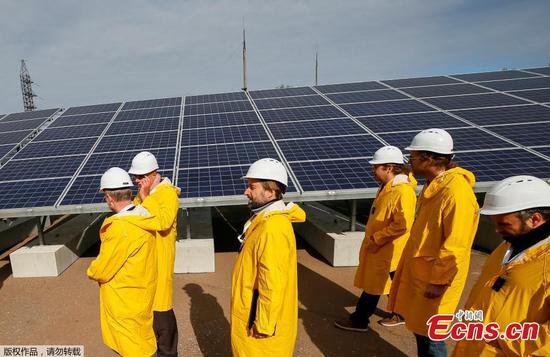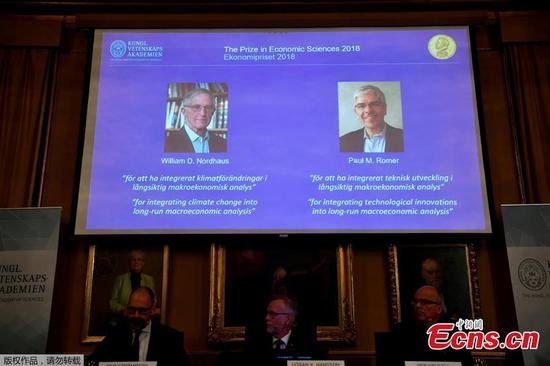European Union nations agreed on Tuesday to seek a 35 percent cut in car emissions by 2030, in the wake of a warning by UN experts on the dangers of global warming.
EU environment ministers meeting in Luxembourg agreed to a 35 percent carbon dioxide (or CO2) reduction for new cars by 2030 compared to models made for 2021. This target was reduced to 30 percent for vans.
Some central and eastern EU countries originally resisted any increase over the initial proposal of a 30 percent cut, but agreed to the compromise after an extra bonus for low and zero-emission vehicles sold in lower-GDP countries was added.
Germany, which had insisted on a maximum 30 percent cut recommended by EU regulators, yielded after winning a separate concession: an interim review of the tougher rules.
The ministerial agreement is yet to be finalized, with further negotiations scheduled on Wednesday with the EU's two other lawmaking bodies: the European Parliament, which is seeking a more ambitious climate target, and the European Commission, which proposed a lower one.
Germany-home to Volkswagen, Daimler and BMW-is worried that if targets are set too high it would hurt exports and threaten jobs.
France, home to Renault and Peugeot, said it had wanted "a 40 percent reduction in CO2 emissions from cars in 2030", but appeared to have accepted the compromise position.
Germany was backed by eastern European member states-while Luxembourg, the Netherlands and Nordic states had pushed for more ambitious reductions.
Auto industry representatives had recommended a 20 percent cut by 2030 and warned that more ambitious targets could lead to job losses, lower profits and a focus on electric vehicles that creates a reliance on Asia for the batteries and risks hitting the industry's ability to innovate.
"We saw a really complicated discussion," Europe's Climate Commissioner Miguel Arias Canete said of the compromise that gained the support of 20 nations, with 4 voting against and 4 abstaining. "I never believed in the beginning that such a strong support would be obtained."
The deal on cars was greater than the target of 30 percent suggested by the European Commission, but it remained well below the 40 percent cut advocated by the European Parliament in a vote last week.
"We are relieved," Austrian Environment Minister Elisabeth Koestinger, current holder of the 28-nation EU's rotating presidency, told reporters after brokering the deal among governments.
"We are bringing clean transport into the passing lane. A 35 percent reduction is very ambitious."
On Monday, UN climate experts urged policy makers to adopt "rapid" and "unprecedented" reforms if they want to adequately limit global warming and meet commitments made at the 2016 climate talks in Paris.
Europe is showing greater resolve to clean up road transport amid heightened warnings about the catastrophic environmental impact of climate change and the economic risks of losing out to the likes of China in the technological transition to low-emission vehicles.
About 15 million autos are sold each year in the EU, with cars accounting for more than a tenth of the bloc's releases of CO2, the main greenhouse gas blamed for rising global temperatures. Electric vehicles in Europe have a market share of around 1.5 percent.


















































